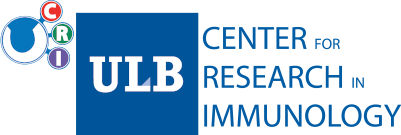H.R.H. Princess Marie-Esmeralda of Belgium, the Princess Lilian Foundation and the University of Liège are pleased to invite you to the opening ceremony of the Foundation's annual scientific research week.
This year, the Foundation will welcome and honour Professor David Lyden from Weill Cornell Medical College (WCM, USA). Professor of Pediatrics and Director of the Cellular Oncology Programme at WCM, he is internationally renowned for his pioneering research on the pre-metastatic niche and biology of exosome in the metastatic process.
This year, the Foundation will welcome and honour Professor David Lyden from Weill Cornell Medical College (WCM, USA). Professor of Pediatrics and Director of the Cellular Oncology Programme at WCM, he is internationally renowned for his pioneering research on the pre-metastatic niche and biology of exosome in the metastatic process.
Day 1 (ULiège) Wednesday April 17
Opening ceremony in the presence of Princess Marie-Esmeralda of Belgium
06.00 pm: Salle Académique, Place du XX Août
Opening lecture: “The pre-metastatic niche concept”
07.15 pm: Reception (registration required)
Day 2 (ULiège) Thursday April 18
Contact person: A. Noel
Meetings with involved research groups and PhD students of the FNRS Doctoral School (EDT-Cancer): 10 am -12 am
2-4 pm: Meeting with PI’s
Day 3 (UGhent) Friday April 19
Contact person: O. de Wever
Meetings with involved research groups and PhD students
04.00p: Auditorium ‘Together’ in building The Core, campus UZ-Gent
Lecture: “Cancer-derived extracellular vesicles (EVPs): impacts on pre-metastatic niches and systemic effects”
Day 4 (KUL) Monday April 22: Joined organization by KUL and VUB
Contact persons: G. Bergers, C. Scheele, P. Agostinis (KUL), Jo Van Ginderachter (VUB)
Meetings with involved research groups and PhD students
11.00 am: Auditorium of ON5 (04.112) on Campus Gasthuisberg
Lecture: “The PMN Immune Landscape and Inflammation”
Day 5 (UCLouvain) Tuesday April 23: Joined organization by UCL and ULB
Contact persons: S. Lucas (UCLouvain), S. Goriely (ULB) at « campus Sciences de la Santé », Brussels
Meetings with involved research groups and PhD students and concluding discussion with researchers and PhD students of the different institutes.
05.00 pm: Auditorium 51G
Lecture: “Significance of the pre-metastatic niche for patient strategy and treatment”
BIOSKETCH:
Opening ceremony in the presence of Princess Marie-Esmeralda of Belgium
06.00 pm: Salle Académique, Place du XX Août
Opening lecture: “The pre-metastatic niche concept”
07.15 pm: Reception (registration required)
Day 2 (ULiège) Thursday April 18
Contact person: A. Noel
Meetings with involved research groups and PhD students of the FNRS Doctoral School (EDT-Cancer): 10 am -12 am
2-4 pm: Meeting with PI’s
Day 3 (UGhent) Friday April 19
Contact person: O. de Wever
Meetings with involved research groups and PhD students
04.00p: Auditorium ‘Together’ in building The Core, campus UZ-Gent
Lecture: “Cancer-derived extracellular vesicles (EVPs): impacts on pre-metastatic niches and systemic effects”
Day 4 (KUL) Monday April 22: Joined organization by KUL and VUB
Contact persons: G. Bergers, C. Scheele, P. Agostinis (KUL), Jo Van Ginderachter (VUB)
Meetings with involved research groups and PhD students
11.00 am: Auditorium of ON5 (04.112) on Campus Gasthuisberg
Lecture: “The PMN Immune Landscape and Inflammation”
Day 5 (UCLouvain) Tuesday April 23: Joined organization by UCL and ULB
Contact persons: S. Lucas (UCLouvain), S. Goriely (ULB) at « campus Sciences de la Santé », Brussels
Meetings with involved research groups and PhD students and concluding discussion with researchers and PhD students of the different institutes.
05.00 pm: Auditorium 51G
Lecture: “Significance of the pre-metastatic niche for patient strategy and treatment”
BIOSKETCH:
Pediatric Oncology at Memorial Sloan Kettering Cancer Center. Currently, he is the Stavros S. Niarchos Professor of Pediatrics and Cell and Developmental Biology at Weill Cornell Medicine at Cornell University. He defined the concept of the “pre-metastatic niche” (PMN), where tumor-secreted factors recruit bone marrow-derived progenitor cells to distant organ sites to provide a platform for metastasis. The existence of the PMN suggests that using systemic therapies targeted to the metastatic microenvironment early in the course of treatment may be beneficial in preventing metastasis. Dr. Lyden’s work underscores the systemic nature of cancer and that only by understanding complex long-range interactions between the tumor and its host can cancer be conquered. As such, Dr. Lyden then went on to demonstrate that tumor-derived extracellular vesicle (EV)-mediated crosstalk coordinates metastatic progression. Specifically, he showed that tumor-derived EVs initiate the PMN by educating distant stromal cells and bone marrow progenitor cells promoting metastasis, illustrating EV roles in systemic disease. He identified key proteins and nucleic acids, specifically double stranded DNA, in EVs and demonstrated that EV cargoes support thrombosis and vascular leakiness in addition to PMN formation. He has defined the role of tumor EV integrins in organotropic metastasis, answering in part Stephen Paget’s “seed and soil” hypothesis on organ-specific metastasis. His lab has devised a new technology, asymmetric flow field-flow fractionation, to dissect the heterogeneity of extracellular vesicle populations, which allows the isolation of exosome subpopulations. Moreover, this endeavor led Dr. Lyden to identify a new particle named exomere, the most prominent tumor particle, which packages distinct proteins (including enzymes that regulate metabolism), lipids and glycans.
Leveraging more than a decade worth of EV proteomics, his lab has performed a comprehensive analysis of EV cargo across a variety of human cancers, identifying novel EV markers as well as pan-cancer and cancer type-specific EV biomarkers for early cancer detection and prediction of metastastic disease. Dr. Lyden is now employing advanced 4D proteomics to enhance the specificity and sensitivity of these assays and to extend these approaches to deconvolute the heterogeneity and improve monitoring of treatment responses to other systemic diseases, such as autoimmune and infectious diseases. Most recently in extrahepatic models of metastasis, his lab demonstrated that small EVs and exomeres can promote fatty liver generation and metabolic dysregulation in the liver which in turn contribute to immune dysfunction, cachexia, and cardiovascular disease, further illustrating the systemic effects of EVs and particles in cancer.
